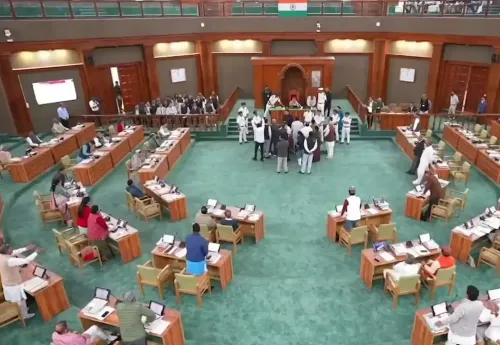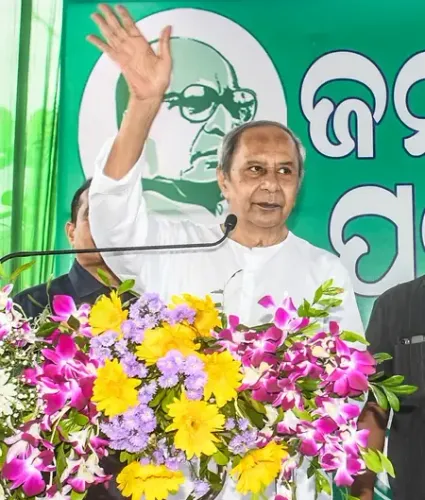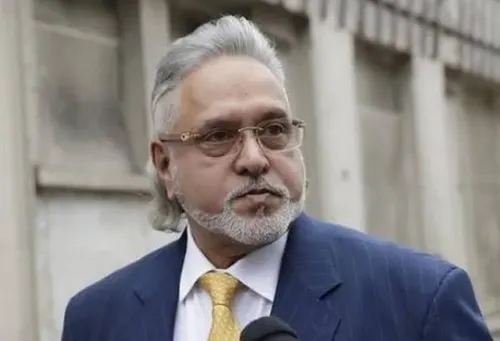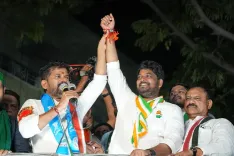Is Today's Authoritarianism a Mirror of the 1975 Emergency?
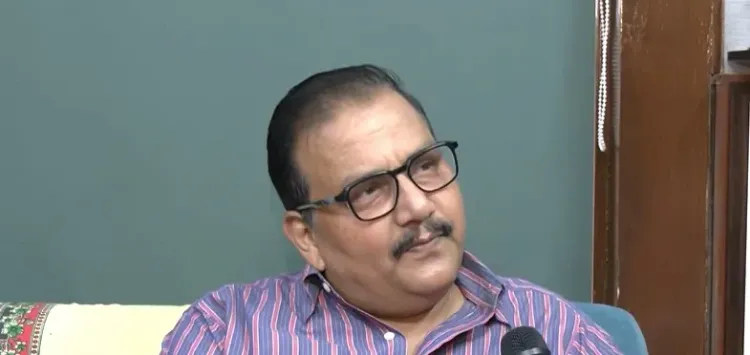
Synopsis
Key Takeaways
- The Emergency of 1975 was a significant event in India's democratic history.
- Current political leaders express concern over a perceived return to authoritarianism.
- Criticism of the ruling party highlights the importance of maintaining civil liberties.
- The anniversary serves as a call for reflection on democratic values.
- Historical parallels underscore the need for active citizen engagement.
New Delhi, June 25 (NationPress) As India commemorates 50 years since the imposition of the Emergency, prominent Opposition figures from the Congress, Rashtriya Janata Dal (RJD), and Shiv Sena (UBT) vehemently criticized the ruling BJP, asserting that the present government's authoritarianism is reminiscent of 1975.
RJD MP Manoj Jha described June 25, 1975, as a “dark chapter” in the nation's democratic history, urging that it should not merely serve as a historical reference. He stated, “This day should be a mirror, not a memory.”
“If Ramnath Goenka were still alive, he would urge media outlets not to reduce this to a symbolic occasion. We must reflect on the current climate: individuals are imprisoned for voicing dissent. Criticism of a single person is often interpreted as criticism of the nation itself,” Jha emphasized.
He further contended that authoritarianism now operates under the guise of democracy.
“There’s scarcely any distinction between the dictatorship of that time and what we currently face. When you critique someone’s past, reflect on your present,” he urged.
Shiv Sena (UBT) leader Ayodhya Poul Patil remarked that while the Emergency of 1975 was officially declared, the current era symbolizes an “undeclared Emergency” in progress.
“Prime Minister Indira Gandhi at least had the audacity to declare it. Today, after 11 years, we are witnessing a silent, creeping Emergency. Citizens are apprehended without cause, and central agencies like the CBI and ED act without justification, scrutinizing even minor financial transactions. This is no less than an undeclared Emergency,” she stated.
Congress leader Vijay Wadettiwar lambasted the BJP for “celebrating” this day while allegedly undermining the very Constitution they profess to uphold.
Wadettiwar remarked, “The BJP is observing this day not for reflection, but to distract from their actions that undermine the Constitution meant for future generations. They are the same individuals who refrained from participating in the freedom struggle, allied with the British, and opposed Babasaheb Ambedkar during the Constitution's formation.”
He pointed out that the BJP’s ideological predecessors sought to introduce the Manusmriti instead of the Constitution, aiming to deny voting rights to women and the impoverished.
“Those who never believed in the Constitution, who openly discuss changing it, and who consistently undermine it, are suddenly vocal about safeguarding it. How ironic is that?” he posited.
The Emergency, which was enforced on the night of June 25, 1975, followed the Allahabad High Court's decision to invalidate Prime Minister Indira Gandhi’s 1971 Lok Sabha election, leading to massive protests spearheaded by Jayaprakash Narayan.
The subsequent morning saw senior Opposition leaders—including Atal Bihari Vajpayee, Lal Krishna Advani, Morarji Desai, Charan Singh, and Devi Lal—arrested under the stringent Maintenance of Internal Security Act (MISA).
In a sweeping crackdown, not only were Opposition leaders targeted, but also internal critics from within the Congress, such as Chandra Shekhar and Krishan Kant, were imprisoned. Civil liberties were suspended, press freedom was obliterated, and countless ordinary citizens faced imprisonment, their lives disrupted.


